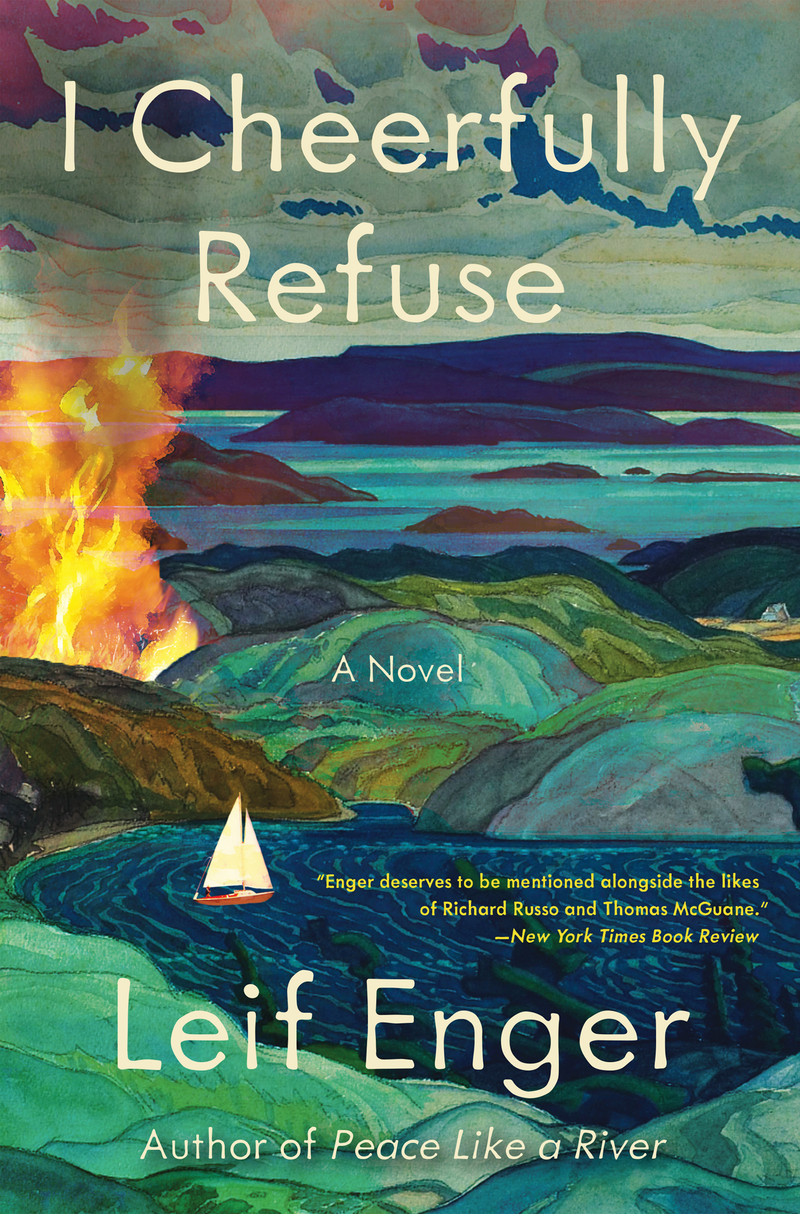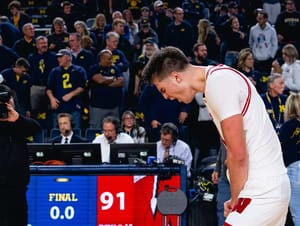I Cheerfully Refuse by Leif Enger
But there’s no magic here, and there are no other heroes waiting in the wings. There is only us, and only we together can save us.

I know you all come here for football, mostly, and for basketball when the weather gets colder. Some of you come here for the community and the wit and the banter. (I have no idea why some of you keep coming, honestly.) But I’m trying some stuff, so bear with me, please.
I haven’t figured out a way to write this book review in a format that doesn’t feel like a middle school book report but also doesn’t read too pretentiously (although it still might. Sorry). I’ve been sitting on the concept for months; the physical book has been sitting on my desk as well, staring at me every damn day.
I Cheerfully Refuse, published by Duluth, MN native Leif Enger in 2024, is the most beautiful and poignant post-apocalyptic novel that you’ll read this year. It’s also likely the only one that you’ll read this year, but that’s hardly the point.
It’s an odd recommendation for a Midwestern sports blog, but this is an odd Midwestern sports blog. The only thing tying this to the broader OTR remit is the lake. Lake Superior isn’t technically the main character. Instead, the book follows a man named Rainy, a quiet, kindly, bear of a man who scrapes out a living with his wife in a small town on the edge of the water. Lake Superior might as well be the star of the book, though. It’s present from the jump to the end of the story, a refuge and a tempest, a highway and a threat. The book is a treatise on love and loss and perseverance. It’s about road trips and rest stops. It’s about the water, about music, about community.
The book opens in a very-near future America, somewhere outside of Duluth and south of the Iron Range in a town called Ice Bridge, just beyond the edge of what remnants of civilization survive. The worldbuilding expands slowly, just a fragment at a time. It becomes clear how shattered the world has become and how distant Ice Bridge is from that reality. Rainy and his wife Lark run a used bookstore in a world in which literacy is no longer a given and no longer a virtue. The handful of hyper-wealthy families that run the country are called astronauts on account of their distance and difference from the rest of the population. Vampire eels feast on the fish that remain in the lake. Centuries-dead bodies buried in Superior’s formerly icy depths rise to the surface; global warming’s effects come for all, alive or long gone. There’s something akin to a Roman town after the fall. These people live amongst crumbling monuments, bridges, and roads that they cannot hope to maintain and can hardly pretend to understand.
For many in this world, it’s a bleak existence. Some choose to end it all. There’s a drug that does it, peacefully and quickly. Plenty choose that path, understandably so. But for his part, Rainy loves Lark and loves his bass guitar and his small community, isolated as they are. It’s enough for him. And then the stranger comes to town.
I’m not sure who originally wrote the quote. I’ve retold it a thousand times as a Kurt Vonnegut original, but other sources show it as a Leo Tolstoy quote. Maybe it’s entirely apocryphal. At any rate, there are only two stories in all the world: a stranger arrives in town, or a person goes on a journey. I Cheerfully Refuse hits both marks, but it doesn’t feel disjointed or overstuffed for it. When the stranger arrives at Ice Bridge, Rainy is forced to flee.
A desperate chase ensues across the majesty of Lake Superior, through glass-smooth water and violent, lethal storms. Rainy endures, bereaved and broken, but only through the compassion of strangers and his own good fortune. Along the journey, he picks up a stowaway and dodges dangers both primordial and novel.
In the end, what matters is tending to one’s own garden, to community and kindness and giving aid to those who need it, to making small things slightly better in the face of the incessantly looming and impending darkness.
I Cheerfully Refuse is a love letter to books and to the power of words, of small towns, of tolerance despite ever present fear and danger. There’s something of a magical realism bent to the book, an almost ethereal feeling to bits of Rainy’s quest across the boundary waters. Even Rainy hopes for something more, a deus ex machina to fix it all. But there’s no magic here, and there are no other heroes waiting in the wings. There is only us, and only we together can save us.




